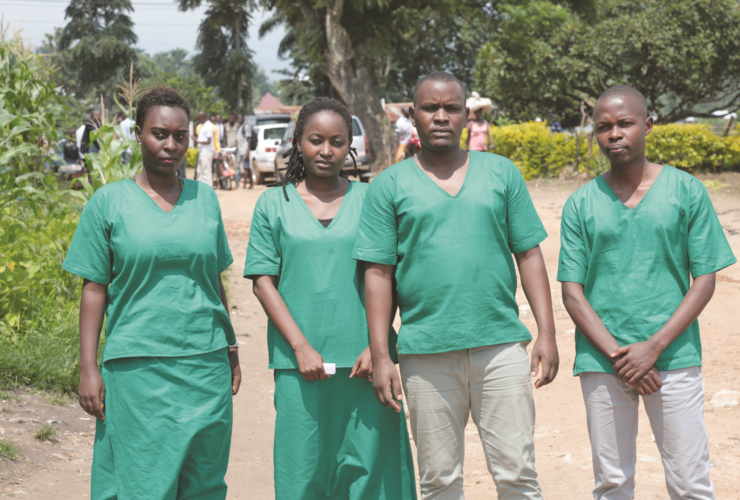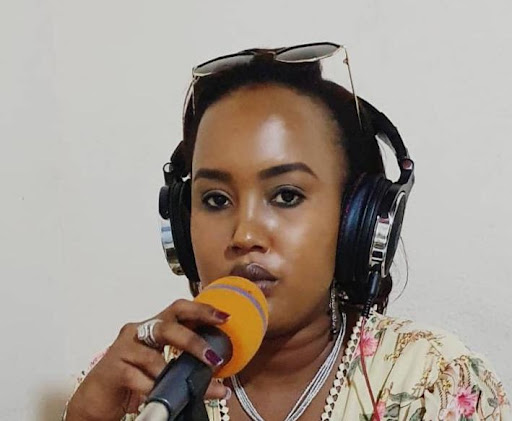The sentencing of four journalists in Burundi to prison on charges of undermining state security is a serious blow to press freedom in the East African country, the International Press Institute, a global network of editors, media executives and leading journalists, said today.
On January 30, a court in Bubanza convicted the four journalists from the privately owned news outlet Iwacu in connection with their reporting on the aftermath of clashes between security forces and a Congo-based rebel group.
Politics reporter Agnès Ndirubusa, broadcast reporter Christine Kamikazi, English service reporter Egide Harerimana, and photojournalist Térence Mpozenzi were each fined one million Burundian francs (around 480 euros) and sentenced to two years and six months in prison.
Lawyers for the group plan to appeal the court’s decision, Diane Uwimana, head of the English-language department at Iwacu, confirmed to IPI. The outlet’s driver, Adolphe Masabarikiza, was acquitted of the same charges.
The reporting crew was detained in the north-western province of Bubanza on October 22 last year, as they were covering the aftermath of skirmishes between Burundian security forces and a rebel group from neighbouring DRC which had crossed the border into Burundi.
Police arrested the group as they were interviewing witnesses near the scene of the attack and took them to the provincial police station in Bubanza, where they were held behind bars for months, IPI reported at the time.
The convictions have fuelled concerns about a wider effort by the Burundian government to try and control politically sensitive reporting in the country ahead of presidential elections in May 2020.
IPI Director of Advocacy Ravi R. Prasad sharply criticized the convictions.
“These harsh and unjustified jail sentences against Iwacu journalists are the clearest illustration yet of the Burundian government’s campaign of pressure and harassment against independent media over the last few years”, Prasad said.
He added: “It is completely unacceptable that these journalists will spend years behind bars for simply doing their job. We call on authorities in Burundi not to contest Iwacu’s appeal in court, drop the charges against them and to immediately improve the wider climate for independent media ahead of May’s vote.”
Widespread rights crackdown
Burundi, a small country in the Great Lakes region of East Africa, has been dealing with the fallout from a political crisis that erupted in 2015 after long-term president Pierre Nkurunziza attempted to seek a controversial third term in office.
After protests against the violation of presidential term limits broke out in the capital Bujumbura, government security forces government clamped down on dissent.
More than 1,200 people were killed, sparking fears of another devastating ethnic conflict and sending the country into a spiral of violence that displaced 400,000 people. As parts of its efforts to regain control over the situation, the government also began to clamp down on critical and independent media.
News outlets have faced increasing pressure and many critical journalists have been forced into exile. Jean Bigirimana, a journalist with Iwacu, has been missing since July 2016.
In February 2018, authorities in Burundi also banned the broadcasts of the BBC and Voice of America within the country. Both outlets have been off the air since.
In November, the country’s Interior Minister explicitly warned the country’s journalists about criticizing the government in their coverage.
Rights groups have accused the government of trying to control messaging and stifle reporting on security issues and rights abuses ahead of the vote.
The climate of fear has undone much of the progress made for media pluralism and freedom since the end of the country’s civil war in 2005.
Last month, the ruling CNDD-FDD party selected it secretary-general and former military general Evariste Ndayishimiye as its presidential candidate.
Despite President Nkurunziza winning a referendum in 2018, which would have allowed him to remain in power until 2034, he has signalled he would not stand for a fourth term.
The United Nations has warned that Burundi risks fresh instability and violence ahead of the vote, noting that press freedom in the country had become a fiction.


